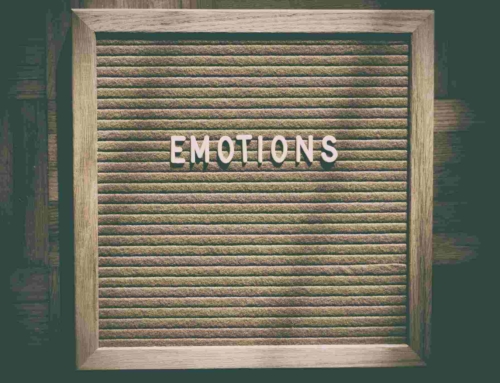You might’ve heard the phrase “high-functioning depression.” What comes into your mind when you hear that phrase? “High-functioning depression” can describe the condition of anyone who continues to take care of their responsibilities despite ongoing, overwhelming feelings of sadness, despondency, low spirits, etc.
 Picture waking up, getting ready, and going to work all day, only to come home and walk your dog, cook dinner, do the dishes, and relax for a little while before going to bed on time. Yet the whole time, you’re unmotivated and you have to force yourself to go through the motions because you feel down, hopeless, and exhausted.
Picture waking up, getting ready, and going to work all day, only to come home and walk your dog, cook dinner, do the dishes, and relax for a little while before going to bed on time. Yet the whole time, you’re unmotivated and you have to force yourself to go through the motions because you feel down, hopeless, and exhausted.
Or imagine being a stay-at-home parent who wakes up and drags themselves through the motions every day for their kids’ sake, but without feelings of joy, accomplishment, or happiness.
Sometimes, high-functioning depression means having periods of functioning where you take care of your responsibilities, followed by times when you “crash” and zone out or underperform – but overall, you’re still able to keep your life going and do what needs to be done.
One of the primary symptoms of depression is lack of motivation, so when we assess someone’s symptoms, we might conclude that if they’re taking care of things in their life, they’re not depressed. This misguided assumption is one of the reasons why people around a depressed person might have no idea how they truly feel.
High-Functioning Depression: Is It Real?
Is high-functioning depression a clinical diagnosis? No, it’s not recognized by the DSM-V, and it’s never been an “official” diagnosis. Instead, it’s a term used to describe ongoing struggles with depression that are hidden because of productivity, an active lifestyle, etc.
According to psychotherapist Mayra Mendez, interviewed by Healthline:
“Depression may inhibit the desire for activity and action, but high functioning individuals tend to forge ahead in an effort to succeed with goals… The drive to accomplish often sustains action and moves high-functioning individuals towards getting things done.”
So, whether your depression qualifies as “high-functioning” may partly depend on your personality and temperament. The more naturally driven you are to accomplish things, the better you might naturally hide any mental issues that are a struggle in your life.
 Some experts disagree with the term, saying it shouldn’t be used as an official description. They saw the symptoms of high-functioning depression likely point to persistent depressive disorder (PDD), which is also known as dysthymia (Medical News Today). Sometimes, PDD is described as the equivalent of high-functioning depression.
Some experts disagree with the term, saying it shouldn’t be used as an official description. They saw the symptoms of high-functioning depression likely point to persistent depressive disorder (PDD), which is also known as dysthymia (Medical News Today). Sometimes, PDD is described as the equivalent of high-functioning depression.
What should you know about PDD? It’s a form of low-grade depression characterized by ongoing low mood and at least two of the following symptoms (Medical News Today):
- changes in appetite
- oversleeping or insomnia
- extreme fatigue
- low self-esteem
- difficulty concentrating and making decisions
- feelings of hopelessness, worthlessness, or guilt
What can we conclude from this? Regardless of the wording, if you’re experiencing ongoing mood problems, don’t dismiss that just because you’re able to cope and function. It’s important to reach out for help. And remember, whether it’s in yourself or someone else, just because someone is functioning well on the outside doesn’t mean they’re not struggling on the inside.
We need to look beyond cliche understandings of mental health issues. Waking up in a fog of sadness every day and struggling to get things done isn’t normal. The sky isn’t always supposed to be gray. If you can’t see the sunshine, it’s not your fault. Please reach out today.
Signs and Symptoms
According to the Recovery Village, it’s important to note that, “the chronic, low level of sadness of high-functioning depression can negatively impact a person’s physical and mental health over time.” So, even though this kind of depression is indeed “low level,” it can chip away at your health.
 It’s also crucial to recognize that over half of people with this type of depression eventually have an episode of major depressive disorder. The sooner you notice the warning signs, the sooner you can address the underlying issue instead of just accepting it as part of life.
It’s also crucial to recognize that over half of people with this type of depression eventually have an episode of major depressive disorder. The sooner you notice the warning signs, the sooner you can address the underlying issue instead of just accepting it as part of life.
The signs and symptoms of functional depression are, as we saw above, usually compared to those of persistent depressive disorder. The Recovery Village also says that “People with high-functioning depression often fail to seek help because the disorder has become so much a part of them that they believe their symptoms reflect normal life.”
Here are some things to keep an eye on if you think this might apply to you or a loved one:
- Feelings of extreme stress based on small problems.
- Changes in weight that stem from eating too much or not enough, but without purposely trying to lose weight.
- Negative emotions of irritability, sadness, emptiness, and/or hopelessness.
- Exhaustion and lack of energy.
- Sleep problems (sleeping too much or not enough).
These signs might indicate that you have a persistent depressive disorder, but they also may indicate a different type of depression or a co-occurring disorder (such as anxiety).
Please don’t feel like you have to live with depression. Christian counseling for depression is available to you. It’s possible to identify your symptoms, diagnose your condition if you have one, and no matter whether you receive the diagnosis you expect or not, you can work with your counselor to make a treatment plan based on your goals.
How to Treat High-Functioning Depression
While keeping an eye out for the warning signs of severe depression (suicidal ideation, complete lack of self-care, persistent feelings of doom, etc.), it’s also possible to take steps to begin your recovery from ongoing low-level depression.
When you meet with a Christian counselor for depression, he or she can help you identify goals and take steps towards healing. Working with your doctor if necessary, your counselor can help you know whether you should ask about medication or other interventions. But here are some steps you can take yourself to facilitate the healing process:
- Exercise. Low-intensity, long-term exercise has proven effective in reducing depression. (Harvard Health)
- Routine. Adding a general structure to your day can help with depression.
- Add in healthy food. Try adding an extra serving of green vegetables twice a day. Make other small changes to get more nutrients in your diet.
- Craft, or do a hands-on hobby.
 Try yoga. Some research points to a reduced stress response linked to yoga, and it can also positively impact anxiety and depression symptoms.
Try yoga. Some research points to a reduced stress response linked to yoga, and it can also positively impact anxiety and depression symptoms.
None of these small measures are cure-alls, but they can offer a little hope, a baby step in the right direction, while you seek more large-scale interventions.
You might be hesitant to seek counseling, but there are steps you can take to make it less intimidating. You could start by browsing our online directory [link] of counselor profiles. Or schedule a risk-free initial session and talk to the counselor about your hesitations.
Depression and the Bible
Although mental health issues can sometimes be stigmatized in Christian settings, the good news is that they are more widely understood than ever before. You don’t have to suffer in silence or feel like you’re doing something wrong because you struggle with depression. Just as God has provided, in his common grace, medicine and doctors to treat physical conditions, he has also provided mental health experts and therapeutic approaches that can treat mental health conditions.
The counselors at [Christian Counseling] use an integrated approach where a Christian worldview meets evidence-based treatments. Compassionate support can make the difference between a life of accepting depression and a life of growth, healing, and possibilities.
Healing from Depression
If you’ve been affected by recent events in your life, in the world, or you’ve been struggling with low-level depression for a long time, you might have gotten used to living with it. You wake up in the morning and the depressive feelings have become familiar. They’re not easy, but you’re used to them. You might think of yourself as strong and resilient.
But admitting your struggle isn’t weak – it’s one of the most courageous things you can do. And getting help for yourself will enable you to become an even stronger and more effective spouse, sibling, child, parent, friend, and example in every role in your life.
To get help for low-functioning depression, moderate or severe depression, or any other mental health struggle you’re facing, reach out to our office today at [phone #]. The counselors at [Christian Counseling] offer both in-person and virtual sessions. Contact us today.
Resources:
https://www.healthline.com/health/depression/this-is-what-high-functioning-depression-looks-like
https://www.medicalnewstoday.com/articles/high-functioning-depression
https://www.verywellmind.com/is-it-possible-to-have-functional-depression-4846575
https://www.therecoveryvillage.com/mental-health/depression/related/high-functioning-depression/
https://www.health.harvard.edu/mind-and-mood/exercise-is-an-all-natural-treatment-to-fight-depression
https://www.webmd.com/depression/features/natural-treatments#1
https://www.health.harvard.edu/mind-and-mood/yoga-for-anxiety-and-depression
“Computer Time”, Courtesy of Robert Bye, Unsplash.com, CC0 License; “Mist on the Ridge”, Courtesy of Maria Teneva, Unsplash.com, CC0 License; “Artist’s Desk”, Courtesy of Sarah Brown, Unsplash.com, CC0 License; “Joy Comes in the Morning”, Courtesy of Sincerely Media, Unsplash.com, CC0 License









